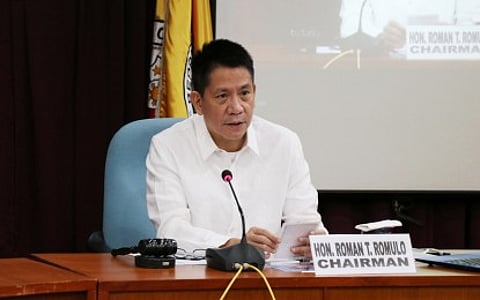
- NEWS
- the EDIT
- COMMENTARY
- BUSINESS
- LIFE
- SHOW
- ACTION
- GLOBAL GOALS
- SNAPS
- DYARYO TIRADA
- MORE

A lawmaker has called for stricter oversight of the government’s Senior High School (SHS) voucher program over reports of “ghost students” and systemic flaws preventing accountability.
Pasig Representative Roman Romulo revealed that issues with the program, which provides financial assistance to students attending private schools, have persisted for years.
“We noticed that many students are enrolled in the voucher program, but there is a lack of proper monitoring,” he said.
The voucher program, introduced alongside the K-12 system in 2016, was initially created to address a severe classroom shortage.
However, Romulo noted that the lack of stringent quality control measures has led to widespread irregularities.
For 2024, the government allocated approximately P40 billion to the program — P12 billion for junior high school students under the Education Service Contracting (ESC) program and P27 billion for SHS vouchers.
Despite the significant funding, Romulo questioned whether the system ensures quality education or merely funnels money into poorly monitored institutions.
“The issuance of permits to operate was not stringent. Monitoring was also lacking,” Romulo said, highlighting structural flaws in how private schools are regulated.
To address these issues, Romulo proposed subjecting voucher recipients to standardized assessments like the National Achievement Test (NAT) to evaluate educational quality.“If you’re a private school and you want your students to benefit from the voucher system, they should take standardized tests to measure performance,” he explained.
Romulo also stressed the need for long-term solutions, including constructing more public school classrooms to address the nationwide shortage of 165,000 classrooms.
Education Secretary Sonny Angara recently confirmed that the Department of Education (DepEd) is investigating 12 private schools across nine divisions for allegedly enrolling “ghost students” under the voucher program.
“We’re looking at the possibility that there’s an accomplice here. Only a few people have information on the voucher program,” Angara said, hinting at potential collusion within DepEd.
The agency said it has taken action, including preparing to terminate the accreditation of implicated schools and gathering evidence for potential administrative and criminal charges.
“Perjury cases may be filed against those involved,” Angara added.
DepEd is committed to ensuring the continuity of education for legitimate students affected by the scandal, he added, pledging to strengthen monitoring mechanisms to prevent similar incidents in the future.
But Romulo emphasized that while holding individuals accountable is crucial, systemic reforms are equally vital.
“We can’t just pinpoint individuals — it’s an institutional issue that needs fixing through proper monitoring and evaluation,” he said.
The lawmaker reiterated that the voucher program’s goal should not only be accessibility but also quality education.
“We don’t just want to provide access; we want to guarantee quality education for those under the voucher program,” he concluded.
